#p m freestone
Note
Shannon - Your Priory of the Orange Tree was my introduction to High Fantasy (I have fallen madly in love with your writing) and I was wondering if you had any personal recommendations of High Fantasy novels that you would regard as in the same "league" as Priory/that has a similar vibe? I'm reading The Poppy War trilogy at the moment, and while I'm really enjoying it, it has a vastly different vibe to Priory. I would love to dive into another sweeping, delectable, diverse, enchanting tale, as Priory was (forgive me, I don't have the words to capture the scope of my love for it).
I loved The Poppy War so much – I highly recommend Rebecca's next book, Babel, which is out in August. It's a masterpiece.
I think you'd probably enjoy all these books:
A River of Royal Blood by Amanda Joy
A Shiver of Snow and Sky by Lisa Lueddecke
Empire of Sand by Tasha Suri
The Fifth Season by N. K. Jemisin
The Final Strife by Saara El-Arifi
The Girl King by Mimi Yu
Mirage by Somaiya Daud
Realm Breaker by Victoria Aveyard
Shadowscent by P. M. Freestone
State of Sorrow by Melinda Salisbury
Truthwitch by Susan Dennard
Twin Crowns by Catherine Doyle and Katherine Webber
Witches Steeped in Gold by Ciannon Smart
187 notes
·
View notes
Photo

#NewArtShow 05-01-23 - Modern Artists Gallery - Jana Muller - Dame Vivienne Westwood MODERN ARTISTS GALLERY High Street, Whitchurch on Thames, Oxon RG8 7EX Featured Artists. Through Jan. Jana Muller: Portrait Paintings. I didn’t get to meet her - Dame Vivienne Westwood and Andreas Kronthaler. Gilson Lavis: Portrait Drawings - Music Legends. Other artists include Gaila Adair, Stuart Buchanan, Alice Cescatti, Sasha Constable, Wendy Freestone, Paul Wright, Nicholas Wright. Please contact before setting out t 0118 984 5893 e-m [email protected]  modernartistsgallery  @modernartists  modernartistsgallery web www.modernartistsgallery.com https://www.instagram.com/p/Cne3KSXITyT/?igshid=NGJjMDIxMWI=
0 notes
Text
emotional hit & run : delete for everyone (x2)
(the problems of feeling ‘i must be annoying / he must think i’m weird’ or the potential rejection … are there, redirect de focus ….) am i coming on too strong like that guy i ghosted - unkind
not a fan of texting/messaging relationships - anxious .. ’the uncertainty’
Carleton, R. N., Norton, M. P. J., & Asmundson, G. J. (2007). Fearing the unknown: A short version of the Intolerance of Uncertainty Scale. Journal of anxiety disorders, 21(1), 105-117.
de Hooge, I., Breugelmans, S., Wagemans, F., & Zeelenberg, M. (2018). The social side of shame: approach versus withdrawal. Cognition And Emotion, 32(8), 1671-1677.
Doron, G., Moulding, R., Kyrios, M., Nedeljkovic, M., & Mikulincer, M. (2009). Adult Attachment Insecurities are Related to Obsessive Compulsive Phenomena. Journal Of Social And Clinical Psychology, 28(8), 1022-1049.
Freeston, M. H., Rhéaume, J., Letarte, H., Dugas, M. J., & Ladouceur, R. (1994). Why do people worry?. Personality and individual differences, 17(6), 791-802.
Kernis, M. (2003). TARGET ARTICLE: Toward a Conceptualization of Optimal Self-Esteem. Psychological Inquiry, 14(1), 1-26.
Kruglanski, A., Webster, D., & Klem, A. (1993). Motivated resistance and openness to persuasion in the presence or absence of prior information. Journal Of Personality And Social Psychology, 65(5), 861-876.
Moulding, R., Coles, M., Abramowitz, J., Alcolado, G., Alonso, P., & Belloch, A. et al. (2014). Part 2. They scare because we care: The relationship between obsessive intrusive thoughts and appraisals and control strategies across 15 cities. Journal Of Obsessive-Compulsive And Related Disorders, 3(3), 280-291.
Suler, J. (2011). The Psychology of Text Relationships. Online Counseling, 21-53.
van Osch, Y., Zeelenberg, M., & Breugelmans, S. (2017). The self and others in the experience of pride. Cognition And Emotion, 32(2), 404-413.
Wegner, D. (1994). Ironic processes of mental control. Psychological Review, 101(1), 34-52.
0 notes
Text
Transcript Episode 49: How translators approach a text
This is a transcript for Lingthusiasm Episode 49: How translators approach a text. It’s been lightly edited for readability. Listen to the episode here or wherever you get your podcasts. Links to studies mentioned and further reading can be found on the Episode 49 show notes page.
[Music]
Lauren: Welcome to Lingthusiasm, a podcast that’s enthusiastic about linguistics! I’m Lauren Gawne.
Gretchen: I’m Gretchen McCulloch. Today, we’re getting enthusiastic about the relationship of the translator and the text. But first, we’re heading into Lingthusiasm anniversary month! This is our fourth anniversary of doing Lingthusiasm, and we’re really excited that we’re still doing this four years later.
Lauren: We love a bit of reflection and nostalgia. The month of November is always an opportunity to be grateful that we have another year of Lingthusiasm. We have a whole 12 great main episodes. We have 12 more bonus episodes. As with every year, if you want to share a link to your favourite episode, November is an especially nice time to do it.
Gretchen: There are still people in this world who don’t know that they could be listening to a fun podcast about linguistics that makes them feel like they’re at a linguistics party instead of doing the dishes. You could help people find them. Most people still find podcasts through word of mouth. Every year we’ve done this in November, we see a big spike in people listening to the show and finding the show. If you wanna share on social media, we are very happy to thank you if you tag us in things.
Lauren: If you want to share off social media, please accept our deepest gratitude non-publicly for sharing shows as well.
Gretchen: Or, if you share Lingthusiasm privately and you still wanna be thanked, feel free to tell us about it on social media. We will still give you a little heart thank you comment. Yes, thank you already for all of the support that you’ve given the show over the years.
Lauren: If you like things additional to podcasts, because we are coming up to the holiday season, it’s also a good time to think about some Lingthusiasm merch or a copy of Because Internet. It’s a pretty great book. I like it. It’s available in paperback now. These things make great gifts.
Gretchen: We now also have annual memberships on Patreon. That could make a great gift to gift somebody to listen to more Lingthusiasm episodes as well as access to the Discord for an online linguistics community.
Lauren: Our most recent bonus episode was about honorifics as a way of being polite to someone either through the title you choose or a variety of linguistic strategies.
Gretchen: You get access to the honorifics bonus as well as 43 other bonus episodes and new bonus episodes every month by going to patreon.com/lingthusiasm.
[Music]
Gretchen: So, Lauren, I’m gonna talk to you about Beowulf.
Lauren: I know this because you have been messaging me for weeks about how we have to talk about Beowulf.
Gretchen: There’s a new translation of Beowulf. I’m really excited. This made me want to build an entire episode around the translator’s relationship to the text because this new translation of Beowulf does a really cool job of it, and I wanna talk about it.
Lauren: I don’t think you’ve been this excited about a translated text since Emily Wilson translated The Odyssey. I’m pretty sure that’s what motivated our 18th episode on word translation.
Gretchen: You are not wrong about this. I think there’s a similar excitement that I have which is old texts – texts that are a thousand-plus years old that have been translated so many different times by so many different people – it feels like it’s hard for someone to do something new with a translation of them. And yet, here people are doing that, which is exciting to me. This is the new translation of Beowulf by Maria Dahvana Headley. She’s done some really cool things with translating Beowulf as a feminist text. It’s a text that uses very modern style language in this thousand-year-old epic poem of Old English literature.
Lauren: I feel like when it comes to translating, before you even translate one single word, there’s all these decisions that a translator has to make. In Episode 18, we looked at translation, but we looked at word-to-word translation. And that’s definitely one part of a translator’s job, but they have so many more decisions to make. It is such an impressive job, and it’s why it’s as much an art form as it is a technical skill to translate something well. So, what are some of the big decisions that Headley made before even starting to translate Beowulf?
Gretchen: One of the things about Beowulf is, as an oral poem, it has this intricate rhyme scheme. The Old English rhyme scheme is based on half lines. Each line has two halves and there needs to be an alliterative bit in one half that is repeated in the second half.
Lauren: So, Old English is way more interested in alliteration compared to our modern English obsession with rhyming. That’s one of the stylistic features you find in Old English.
Gretchen: It’s all about the beginning of the words rather than the ends. Trying to figure out, okay, how much am I gonna use alliteration? How much am I gonna try to represent – because we can do alliteration in modern English – how much am I gonna try to represent the existing rhyme scheme? Where am I gonna try to put it in actual rhymes like you would do in modern English – if you’re writing a poem, you might rhyme it? What am I gonna do with the metre? She’s produced this really oral text that uses a certain amount of modern slang as well in ways that are really effective. One example is there’s a dragon in Beowulf, and the dragon at one point is described as “Putting the world on blast.”
Lauren: Nice.
Gretchen: To some extent, this is modern slang, but it’s also a very literal thing that a dragon can do. It’s not using modern slang for gratuitous – like, there’s no “lols” or “omgs” in this text. It’s not like here’s this facile text-speak version of Beowulf. It’s what are the bits here that actually work with the metre and the rhyme scheme but also not shying away from using a modern idiom where a modern idiom really works.
Lauren: It’s interesting to put this in contrast to the other most famous version of Beowulf in translation that I know of which is Seamus Heaney’s from somewhere in the middle of the 20th Century where I feel like he tried to capture the mythical grandeur of Old English and chose very stoic, solid sounding Old English words. I don’t think he would’ve had the dragon “putting the world on blast.”
Gretchen: Well, I don’t think he would’ve – I think it came out in 1999, this translation. In some ways his translation is fairly vernacular, but he tries to do that in a different sense. Can I read you the first bit of the Headley translation and the Heaney translation?
Lauren: Yeah. This is super fun.
Gretchen: Okay. A big thing about Beowulf translations is the first word which in Old English is “Hwaet.” That has gotten repurposed as a meme, which we’re not gonna get into much detail about. Some people translate that as like, “Lo!” or “Hark!” or “Listen!” or something like this. Heaney translates that as “So,” which has already got a certain level of vernacularity to it. His first three lines go, “So, the Spear-Danes in days gone by and the kings who ruled them had courage and greatness. We have heard of those princes’ heroic campaigns.” This is very stately and like, “Here’s this thing you’re gonna do.” If you compare that with the first three lines of the Headley translation, the new one, she translates this “Hwaet” as “Bro.”
Lauren: Hm, that’s a very different tone.
Gretchen: It’s a very modern tone. I mean, you could pick a whole bunch of very modern things like “Yo” or “Hey all,” but specifically the reason she picks “Bro” is because she wants to highlight the bro culture-ness of this entire story. You can see that in the next couple lines which is, “Bro, tell me we still know how to speak of kings. In the old days, everyone knew what men were – brave, bold, glory bound. Only stories now, but all sound the Spear-Dane song, hoarded for hungry times.” It just leaps off the page in a way that really excites me.
Lauren: Yeah, no “princes” there.
Gretchen: Right. “Kings who ruled had courage and greatness” – “The men were bold.”
Lauren: The thing I always love about Beowulf is that it’s a millennium-old oral poem that happened to be written down, and a millennium ago people were like, “Let me tell you about the olden days.” [Laughter]
Gretchen: Right, it still takes place in this semi-mythic space, and it uses a certain stylised language that we even think was stylised at the time. You’re always picking between some kind of stylisation. There’s no neutral choice that exists. All of the choices are recreations at some level.
Lauren: I mean, it is kind of weird to think you’re translating from English into English, but it just shows how much the language has moved on because reading Beowulf if you don’t know Old English is an incredibly uncomfortable attempt to just guess some words that have retained some familiarity. I always find it interesting that you have to translate. And then because English went through enough changes by Shakespeare, we kind of put up with all of the features of Shakespeare that aren’t immediately obvious to us.
Gretchen: Right. But Beowulf is really this alien text. Like, “Hwaet. We Gardena” – and “Gardena” is “Spear-Danes,” but we don’t have “Spear-Danes,” and “Gardena” is not obviously related to those. There’s this great miniseries from The History of English Podcast that does a very in-depth line-by-line reading of Beowulf which I enjoyed a while back.
Lauren: My one semantic anecdote from that series is “Gar-Danes” as in “Spear-Danes” – garlic is the “spear-leek.”
Gretchen: Yes, it is!
Lauren: Because it’s like a little spear.
Gretchen: It’s like a little spear-leek. I love that anecdote. It’s interesting to be reading Beowulf at the same time that my book club is actually reading The Tale of Genji.
Lauren: Ah, from like a similar – Genji’s also a millennium old, yeah?
Gretchen: Yeah! In some sense it’s like Beowulf and Genji are kind of contemporaries.
Lauren: But they’re very much not contemporaries. Beowulf is about warrior bro culture in the Old English setting, whereas Genji is a Japanese court drama.
Gretchen: I don’t think they would’ve gotten along. I think they would’ve just found each other completely incomprehensible. Genji’s also one of those classic texts that’s been translated a whole bunch of different times in a whole bunch of different ways. For one thing, you’re translating from a much older version of Japanese. There are modern Japanese translations of The Tale of Genji as well. And then you’re also translating into a different cultural context. But the cultural context for Beowulf is also very weird. Like, I don’t do going and fighting monsters under lakes any more than I do writing haikus about the moon. In fact, I’m probably more likely to write a haiku about the moon than I am to go fight a monster under a lake if we wanna talk about relatability.
Lauren: Everything I know about Genji is because one of my colleagues in the Languages Department at La Trobe is a Genji studies scholar. It’s one of those pieces of work that is so big and so canonical that it has its own literary studies tradition associated with it. I also really love my colleague because the other part of her expertise is cosplay studies. I think it’s such a great combination of Japanese cultural experience there – Genji and cosplay.
Gretchen: I mean, what more do you want? The neat thing about reading Tale of Genji at the moment is because I’m reading it as part of a book club through Argo Bookshop – which is a bookstore that did the book launch party for Because Internet and I really like them – they’re having this Tale of Genji book club, and we’ve been reading it throughout the year a few chapters at a time because it’s over 1,000 pages. It’s huge. So, we’ve been reading it section by section, and different members of the book club have picked different translations into English of the same work.
Lauren: Ah, cool! Are there radical differences between the translations? Or do they all try and go for a literal approach?
Gretchen: They’re really different. One of the big things with Genji is at the time in 11th Century Japan it was considered very rude in the court to refer to people by their actual names. None of the characters in the original Tale of Genji manuscript have names, except for maybe Genji. So, you can imagine reading a thousand-page book where none of the characters have names is a bit of a feat of the imagination.
Lauren: Yes.
Gretchen: Different translations – and a lot of them have conventional names that literary scholars have used to talk about the characters. For example, Lady Fujitsubo lives in the Fujitsubo, which is the western pavilion, and so she gets called in the tradition “Fujitsubo” because that’s where she lives, and this kind of stuff. Or Murasaki gets called that after a flower, I think, the character. In some translations, they just use these conventional use names as if they’re the actual names of the characters. In some translations, they just use descriptions like the original text did, and they don’t really refer to characters by even pretend names or use names.
Lauren: So, one of them is trying to strive for cultural authenticity, and the other one is trying to just help the poor confused reader a little bit more, and that’s choices that each translator has decided to make.
Gretchen: Exactly. You also have other types of decisions like, “Are you going to try to” – because it’s a court drama, you have all these court positions. Are you going try to map those positions onto a western court so that people understand what a chancellor is? Or are you going to try to use those as a more direct translation of what the specific terms were at the time? That’s just different decisions that different translations can use.
Lauren: When you meet as a book club, is everyone following along, or is there a lot of clarifying across translations? Such an interesting little exercise.
Gretchen: Well, the nice thing is, is the division into different chapters is very constant, so we can be like, “Okay, we’re reading Chapters 6 to 10 now. We’re gonna talk about what happens in those.” But sometimes you do pull something up, and you’re like, “Okay, so this bit where this thing was said, do we think Genji is kinda misogynistic here?” And somebody will say, “Well, in my translation, it doesn’t actually seem like he’s misogynistic.” And here’s what’s going on in this particular translation versus that particular translation. And how much of it is the translator bringing their own preconceived notions of how people relate to each other? Because some of these translations are from the 1920s or something. People may have had different politics there. And how much of that is in the original text which was composed by a woman who we don’t know that much about? But it’s the first modern novel. It’s an interesting like, “How much are you going to try to westernise this book for a western audience?” Which some of the older translations do a bit more with the westernisation adaptation because people in the west hadn’t heard of Genji very much before. You do all this adaptation for your English-speaking readers. Whereas, more recent translators, people tend to have a higher degree of expectations of fidelity when it comes to a more modern translation. Sometimes they try to do that. And, you know, how many footnotes do you have? How much do you try to explain additionally? How much do you try to just make the text stand on its own as a story?
Lauren: So many choices to make as a translator. I’m eternally grateful to people who do this and make it appear so effortless while doing so much work bringing all of this context together.
Gretchen: It’s really neat. I’m not gonna read this 1,000-page book five different times in five different translations, but being able to experience portions of those translations vicariously through other people talking about, “Oh, here’s what happened in this one, here’s what happened in this one,” it does let you do this interesting comparative textual study.
Lauren: I’ve been thinking about translation in practice a lot lately because having worked with P. M. Freestone on their Shadowscent books, “The Darkets Bloom” and “Crown of Smoke,” these books have gone into translation in a whole bunch of languages, mostly European languages to date – Spanish, German, French, Russian, and Polish. I’m very excited about the upcoming Hungarian translation which will the first outside of the Indo-European language. But these translations involve a couple of things that are really interesting in that, in these books, I worked on creating the Aramteskan language, and for this language to work across different languages, sometimes it gets technically transliterated, or you need to add a different type of plural. For example, Russian has a different alphabet to English and so you need to fit this language into the Russian Cyrillic alphabet.
Gretchen: You’re not trying to pretend that Aramteskan is always written with the Latin alphabet. Even when the book itself is in Russian, you’re like, we’re gonna transliterate it into Cyrillic?
Lauren: No, translators have very much done what they think is most appropriate. I have a habit of buying these translations now and checking out what they’ve done because they’re not just translating from English into another language, they also have to translate this completely fictional language and this fictional world into that language as well. It’s one thing to maybe study in-depth Old English warrior culture or Japanese court culture and decide what to bring across, but with a fantasy world, there’s all kinds of choices you have to make as a translator as well.
Gretchen: Yeah, like what are you gonna do with the magic system? Or if you’ve invented all of these words for different scents or something, then they have to figure out some sort of equivalent of inventing those words for the other language.
Lauren: There’s a lot of scent vocabulary even in the English that P. M. Freestone has written in, so really taxing that part of the translator’s repertoire. One thing that’s been particularly interesting and that there’s been some discussion on how to manage is that in this world, both in the historical part of the world and the contemporary part of the world, the culture and the grammar allow for gender neutral third person like the English modern use of “they,” which Kirby Conrod gave a great interview about how that works in contemporary English. In fact, I did a little historical evolution of the pronoun system that fits with the story of the world where originally there was no gender distinction in the pronoun system, which fits with the old religious system of the world. And the religious system evolved younger gods that are all gendered, and the pronoun system evolved genders at the same time while still having that scope for gender neutral. Without spoiling too much, but a character that pops up in Book One and is much more a part of Book Two is gender fluid within the world. That works for current English because we have gender neutral singular they, but there are some languages like Czech or like Russian that the book’s being translated into where there isn’t that flexibility in the linguistic system. So, decisions have to be made about how that is negotiated in the translation.
Gretchen: Do you know what they did?
Lauren: I don’t know what they did for Russian yet, but I believe the solution in Czech is at various times this character is overtly identified using masculine and at other times using feminine – being much more flexible about the duality of their relationship with gender.
Gretchen: This reminds me of a thing that I heard Ada Palmer talk about at a conference panel with her book “Too Like the Lightning” and the sequels, which are set in this far future of English – well, far future and they’re written in English – in which singular they is used for everybody except when you’re writing in this faux-archaic style with “thous” and “thees” and “hes” and “shes.” It’s very marked at that point. Ada Palmer was talking about how this was translated into French where in modern English the progressive thing that people do is like, “Oh, we can use singular they. That’s very progressive.” In modern French, the progressive thing that people do is they make feminine versions of all of the professions.
Lauren: Right.
Gretchen: You have feminine versions of “professor” or “doctor” or these kinds of things to try and make the gender more visible. And so erase the gender in the French version wouldn’t have the same effect – where you’d end up using the default masculine or something in the French version – it wouldn’t have the same effect as using singular they all the time in the English version. There are modern French pronouns like “iel” that have been coined to solve this problem of using a gender neutral third person pronoun, but it wouldn’t work to use them in this particular case because the style is supposed to be faux-archaic. What the translator ended up doing was digging out this French pronoun “on,” which in the modern form “on” is used like “we” or like “one does this.” It’s related to like, “One does this.” There’s an older usage of “on” which is like a non-specific third person pronoun as well that – I speak French, but I didn’t know about this archaic form. And the translator went and looked for what other historic pronoun things could I do and ended up doing with “on” thing, which is a really interesting adaptation.
Lauren: The thing I find interesting is if you were – 50 years ago, you didn’t have the grammatical resources in English to use singular they for a specific person. It’s something that’s really only emerged in the last couple of decades. I think the translator has felt frustrated to not have – you know, you sometimes feel like you’ve got this road block because you don’t have resources in one language that you have in another and you have to innovate. I did have a colleague in Italian studies tell me that they read a whole novel once where the gender of one of the characters was deliberately written around and avoided in a way that was an incredibly artful, thoughtful translation. It is possible that you could maybe do this with this character in the Shadowscent books, but it would be such –
Gretchen: But you couldn’t do it with the whole world in the Terra Ignota books because all of the characters would have to have that.
Lauren: Yeah. And you could do that amount of heavy lifting at the cost of some other things, but when you’re doing an efficient translation for a commercial novel, you don’t have the resources to really max out your art and strategy in that way. It’s interesting that, you know, translation is a really resource-intensive activity even to just do a good translation, let alone an incredibly strategic and thoughtful translation.
Gretchen: Even translating one word, like that word at the beginning of Beowulf, involves thinking about, “Okay, what kind of relationship do I want this word to have to the rest of the text? What am I trying to set up here in relationship to the whole text? Where do I see this attention-getting word as going?” Like, what the text as a whole is doing, which is this interesting question. I should say, speaking of translation news, this is very hot off the presses, but I have received news that there are gonna be translations of Because Internet into Persian, Chinese, and Japanese. So, all – well, Persian is an Indo-European language, but it has a different writing system, and then two non-Indo-European languages. I don’t know anything else about the details yet.
Lauren: This is news that I didn’t even know. This is very exciting.
Gretchen: It’s very recent, yes. It’s not – I dunno. I will have official links when they exist. They won’t exist for, I dunno, probably a couple years. I dunno how long it’ll take them to do. I know nothing.
Gretchen: The surreal thing about translation means that you will see you work and not be able to read it. There’s something so amazing and magical about that, that words you have created are finding new audiences – you know, there’s a lot of trust in the translator in those contexts.
Gretchen: Yeah, and I don’t know if I’m gonna get to have any say in who they get to translate it and how much they know about the internet or things like that.
Lauren: Translating non-fiction is an entirely different process because you’re not translating an internal narrative world as much as you are potentially translating something that explains how this world that we live in right now exists, or how a set of historical realities existed. That also takes deftness and skill.
Gretchen: And you’re potentially trying to translate technical vocabulary between one language or another, which isn’t necessarily the same as, “Okay, we need to keep the characters’ names consistent. It’s like, “We need to use this word that has a technical meaning in its technical sense.” Speaking of non-fiction translation, I dunno if you’ve been following in translation news relatively recently, there’s been a lot of things going on with the Scots language Wikipedia.
Lauren: Yes, I did read about this. So, Scots language is a language in the same family as English. It has a lot of similarities with English but is considered its own “variety,” using that very deliberate linguist term where you don’t commit to just how much it’s a dialect or its mutual intelligibility with other varieties that its related to. And it has its own Wikipedia.
Gretchen: Scots is kind of like, as an English speaker, I’ve always been kind of jealous of people who speak Dutch or German or something because they can kind of understand each other a bit. Or Spanish and Portuguese and Italian because they can kind of approximate understanding each other to some extent even if they haven’t formally learned the languages. I’ve always been like, “Why doesn’t English have some closer neighbours?” But I hadn’t been thinking about Scots when I was thinking that. Scots is probably English’s closest neighbour but is still a distinct language and, especially, there are grammatical differences and there are a lot of political reasons as well why people consider it its own language. However, [laughs] the Scots language Wikipedia, which has all of these articles written in Scots, had apparently been being edited for the last seven years by an American teenager who didn’t know any Scots and was just looking up the English articles in a Scots-English dictionary word-by-word and just picking the first word of the translation and subbing that in for the Scots word.
Lauren: This has been such a difficult story to read because everyone throughout this process has acted in the best faith. This teenager wasn’t doing this for any reason other than a passion for sharing knowledge on Wikipedia and a passion for seeing the Scots Wikipedia grow but with a really uncritical approach to translation. You can see where translation really does require this understanding of vocabulary choice and style choice and how it can all go really, really wrong.
Gretchen: Yeah, it’s really painful because this person started when they were, like, 12, and we have all believed very foolish things about the world when we were 12. It’s just many of us didn’t write thousands of Wikipedia articles in a language that is just really not the way anybody who actually speaks this language actually writes because it’s cobbled together badly from a dictionary. It’s this very painful, “Oh, no! You thought you were helping.” And yet Wikipedia is used as the basis of a lot of machine translation, and language detection, various natural language processing tools, and so this has been potentially sabotaging the efforts to try to create other machine tools in Scots because they’ve all been in this weird dictionary-a-fied version of English.
Lauren: It’s been really heartening to see the Scots language community and the Scottish Wikipedia community come together to figure out a strategy for how to approach cleaning house – I guess it’s the biggest spring clean ever, right – how to approach this, like, thousands and thousands of articles with this very strange approach to translation.
Gretchen: It illuminates one of the issues with smaller language Wikipedias in general which is that they may only have a few active editors because to be a Wikipedia editor is to be a volunteer. It takes a long time to translate things or to write articles. If you’re a language like English, you can have tens of thousands of editors. But if you’re a language like Scots which has many fewer speakers, you may only have a dozen active editors of which maybe one of them is a well-meaning but very clueless American teenager.
Lauren: We’ve both done lots of Wikipedia editing. We have run LingWiki events to improve linguistics content on Wikipedia. It’s challenging enough to write these articles in one language that I am proficient in. I’m always in awe of people who choose to translate and support content in their second or third languages because it is a non-trivial task to translate really complicated information in a way that is really clear.
Gretchen: Translation is a technical task that is one of those things that looks at all of the different levels of language where you have some things at the individual word, or even sound, or if you’re trying to translate poetry and you wanna make it beautiful in a very aesthetic sense with the physical properties of language, all the way up to words and sentences and structure and these discourse-y particles like “Hwaet” at the beginning where you’re trying to picture a whole framing device for the structure of an entire tone of a narrative. Or if you’re trying to pick, “Okay, how are we going to treat technical vocabulary that maybe has been borrowed from English?” because its scientific vocabulary that was invented from English, how are you gonna treat that when it gets borrowed into Scots? Trying to figure out how to make these technical decisions is non-trivial. It’s this very interesting train wreck. It can go spectacularly right when you have this very clever decision for a dragon to put the world on blast, and it can also go spectacularly wrong when you just say, “Okay, I’m gonna look through a dictionary and then pick the first word I encounter.”
Lauren: One of the great things about appreciating a good translation is that language never takes a break. Culture continues to change, and we move further away from the era of Beowulf. We move into new cultural settings and new cultural expectations. It means that there is space for new translations that bring new approaches, or try something different, or aim for really capturing something about the language of the era it was created in, or set an old story in a radically new setting. Even when you find a really satisfying translation, you know there’s still possibilities for finding other interesting ways to engage with the text.
Gretchen: I think that’s a thing that’s exciting about both the translations of these thousand-year-old texts, whether Beowulf or Tale of Genji, where they go through lots of different authors who put their own spin on the translation. And also thinking of Wikipedia as a place for translation where you have multiple authors working together on the same shared text, and a bunch of different people – like Scots Wikipedia has been having these Wikipedia edit-a-thons to try to clean the place up. You have a whole bunch of contributors that are finding out about this need because of this story and coming in and working on the text together and contributing to the shared text. In many ways, even though each of these editions of the translations are published as their own book for book-length ones, it’s this very intimate relationship that you can have with a text when you’re trying to render it in a different language or in a different textual interpretation.
[Music]
Gretchen: For more Lingthusiasm and links to all the things mentioned in this episode, go to lingthusiasm.com. You can listen to us on Apple Podcasts, Google Podcasts, Spotify, SoundCloud, YouTube, or wherever else you get your podcasts. You can follow @Lingthusiasm on Twitter, Facebook, Instagram, and Tumblr. You can get IPA scarves, IPA ties, and other Lingthusiasm merch at lingthusiasm.com/merch. I can be found as @GretchenAMcC on Twitter, my blog is AllThingsLinguistic.com, and my book about internet language is called Because Internet.
Lauren: I tweet and blog as Superlinguo. Have you listened to all the Lingthusiasm episodes and you wish there were more? You can access to 44 bonus episodes right now to listen to at patreon.com/lingthusiasm or follow the links from our website. Patron also get access to our Discord chatroom to talk with other linguistics fans and other rewards as well as helping to keep the show ad-free. Recent bonus topics include pangrams, honorifics, and linguistics with kids. If you can’t afford to pledge, that’s okay, too. We really appreciate it if you can recommend Lingthusiasm to anyone who needs a little more linguistics in their life, especially as it’s the anniversary month.
Gretchen: Lingthusiasm is created and produced by Gretchen McCulloch and Lauren Gawne. Our senior producer is Claire Gawne, our editorial producer is Sarah Dopierala, and our music is “Ancient City” by The Triangles.
Lauren: Stay lingthusiastic!
[Music]

This work is licensed under a Creative Commons Attribution-NonCommercial-ShareAlike 4.0 International License.
#language#linguistics#lingthusiasm#episode 49#transcripts#translation#translations#beowulf#tale of genji#maria dahvana headley#shadowscent#p m freestone#wikipedia#scots#japanese#old english#scots wikipedia
113 notes
·
View notes
Photo
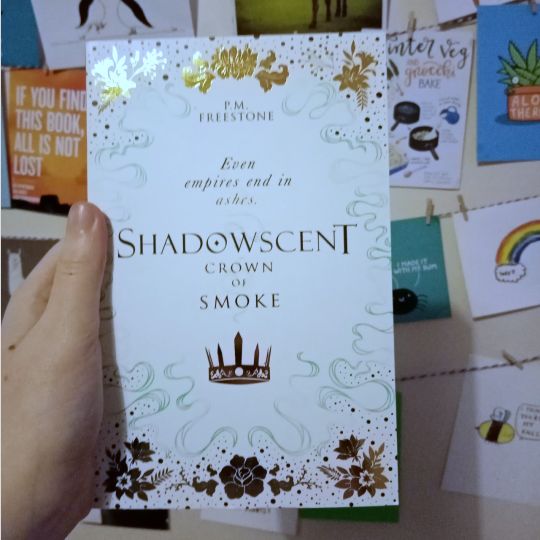
Crown of Smoke by P.M. Freestone
#crown of smoke#shadowscent#pm freestone#p m freestone#am reading#reader#read#reading#book#books#book cover#booklr#fantasy#ya books#young adult#ya fantasy
2 notes
·
View notes
Text
Duty.
Love.
Nisai.
Ash is in love with Nisai.
He looks over to me. It's a look of complete vulnerability.
I flinch. He knows that I know.
I'm going home
1 note
·
View note
Text
Book Review: Shadowscent: The Darkest Bloom by P.M. Freestone
Book Review: Shadowscent: The Darkest Bloom by P.M. Freestone
Hey Guys!
Another week has been and gone and that can only mean one thing, that it is time for another book review. this week it is the turn of Shadowscent: The Darkest Bloom by P.M. Freestone. So, without further ado, let’s do this!
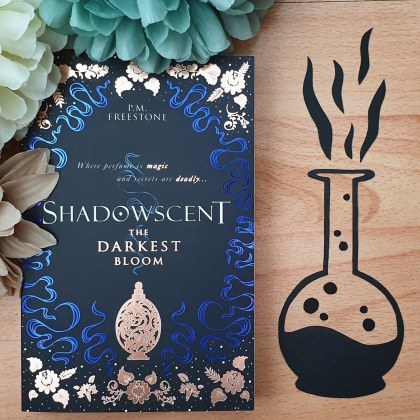
I have no idea what I was expecting this book to be but this wasn’t it. this is unlike anything that I have ever read before, but somehow also like so many books…
View On WordPress
#autumn#book#book review#book reviews#books#p m freestone#read#reading#reads#review#Reviews#shadowscent#the darkest bloom
1 note
·
View note
Photo
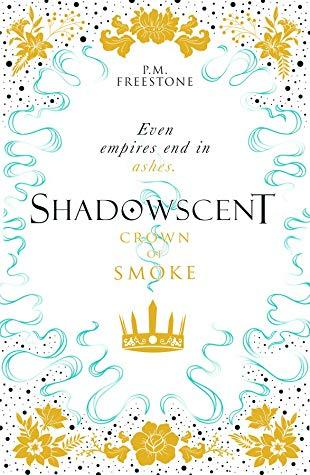
CROWN OF SMOKE
by P.M. Freestone
Shadowscent #2
(Scholastic, 4/2/20)
9781407195063
Add to Goodreads
Purchase from Indiebound
In the empire of Aramtesh, scent has power. In the first volume, the prince was found poisoned in the temple, sparking a high-stakes quest for an antidote. In the explosive conclusion, Rakel and Ash are separated as the empire hurtles towards civil war, and everyone must choose a side.
#finale#whitebeige covers#april 2020#apr 2 2020#freestone#p m freestone#scholastic#crown of smoke#fantasy#sequel#rachel note for updates#shadowscent
0 notes
Text

Title: The Darkest Bloom | Author: P. M. Freestone | Publisher: Scholastic (2019)
7 notes
·
View notes
Text
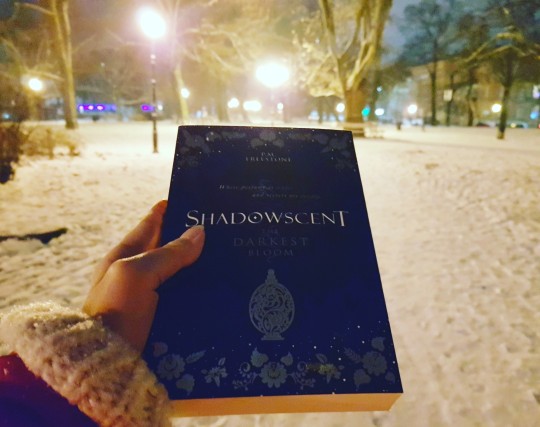
Happy Tuesday. How has your week begun? I managed to catch a cold so I'm in home office this week.
#books#booklr#bookblogger#ya books#book photography#yalit#book photo#books outside#shadowscent#books in winter#p. m. freestone
1 note
·
View note
Photo










Queen - Somebody to love (Performed at Wessex Studios, Nov. 1976)
“Freddie was asked many times about this (about which was his favorite song) in interviews and most of the time he avoided the answer, mainly because he didn't want his words to be turned around in print. He told me his favourite song was 'Somebody To Love'. The reason he didn't want to say this was because it was one of his own songs, and he didn't want it said that he only liked his own music and not any of the other band members''. - Peter Freestone
#queen#freddie mercury#brian may#john deacon#roger taylor#<3#psd#my gifs#gif#somebody to love#70s#1976#videoclip#i love this song so much#kinda#long post#mv
398 notes
·
View notes
Note
I just got to Stéhane’s introduction, and I just wanted to pause to say thank you. It’s so incredibly, frustratingly rare to find non-binary representation, and the way you introduced them is lovely- they just are, and it’s no big deal, as it should be. Thank you. 💚
I'm so glad you like Steph!
Some more books with NB rep:
Blackheart Knights by Laure Eve
The Empress of Salt and Fortune and When the Tiger Came Down the Mountain by Nghi Vo
Shadowscent by P. M. Freestone (the NB rep is more prominent in the sequel)
She Who Became the Sun by Shelley Parker-Chan
39 notes
·
View notes
Photo
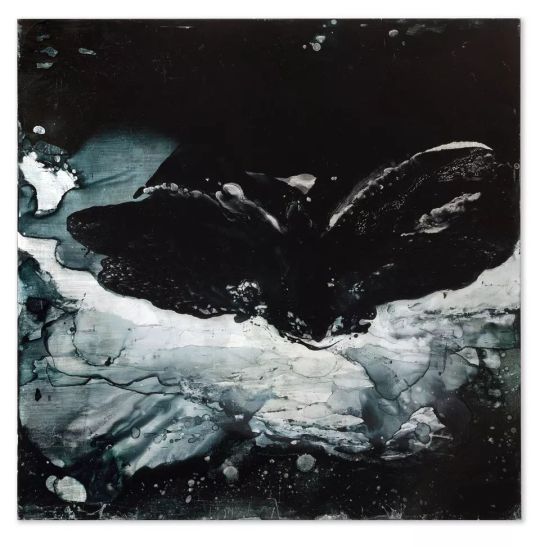
#NewArtShow 30-04-22 - Modern Artists Gallery - Alice Cescatti - Butterfly Phoenix MODERN ARTISTS GALLERY High Street, Whitchurch on Thames, Oxon RG8 7EX Paintings: Gaila Adair, Steve Whitehead, Paul Wright, Stuart Buchanan, Paula Zimmermann. Sculpture: Sasha Constable, Wendy Freestone, Nicholas Wright, Mark Hall, Frances Goddard, Sarah Lewington. please contact before setting out t 0118 984 5893 e-m [email protected]  modernartistsgallery  @modernartists  modernartistsgallery web www.modernartistsgallery.com https://www.instagram.com/p/CdAZ4vToy0F/?igshid=NGJjMDIxMWI=
0 notes
Text
Aramteskan Grammar, now available at Fiat Lingua
The full Aramteskan grammar has been published on Fiat Lingua. This contains all the notes and details of the constructed language that I created for the Shadowscent fantasy world. Now that the series is completed, I decided to share the work that I had done on the language, in part to stop myself from continuing to tinker with it.
From the Fiat Lingua summary page:
This document provides an overview of the grammar of the Aramteskan language, created by Lauren Gawne for P. M. Freestone’s Shadowscent series (The Darkest Bloom and Crown of Smoke). This represents the state of completed work on the grammar at the conclusion of these two books. This is by no means a complete or detailed grammar, and some sections may contain more information than others.
The publication includes notes on a variety of linguistic features. It also includes a detailed translation of the quest text in book one, and a glossary of words in Aramteskan.
Reference:
Gawne, Lauren. 2021. Aramteskan Grammar. Fiat Lingua. https://fiatlingua.org/2021/10/
See also:
How I made the Aramteskan language for P.M. Freestone’s Shadowscent
Smell verbs in Aramteskan - One way of walking, but many ways of smelling
Shadowscent Updates: The Darkest Bloom in many languages, Crown of Smoke pre-order, map and… a perfume
Lingthusiasm Episode 37: Smell words, both real and invented
15 notes
·
View notes
Photo
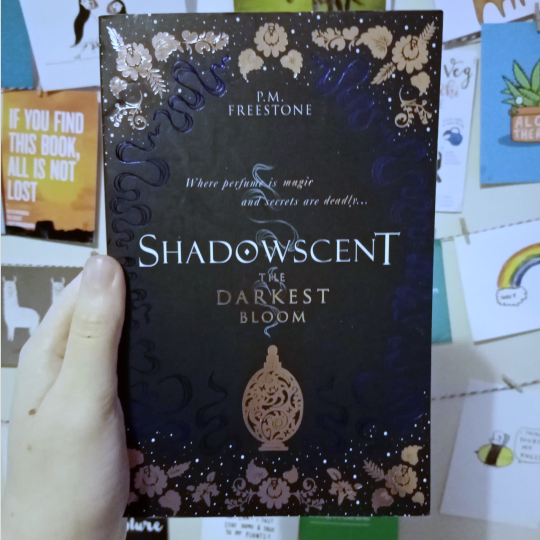
The Darkest Bloom by P. M. Freestone
#the darkest bloom#pm freestone#p m freestone#shadowscent#perfume#read#reader#Reading UK#am reading#currently reading#book#books#booklr#bookish#book cover#ya fantasy#young adult#ya books#ya reader
2 notes
·
View notes
Text
Her eyes, completely black so I can't tell where her pupils end and irises begin, are unnerving.
I'm assuming this is a slip on the author's part as the character in question had eyes that were completely black, including where they would usually be white, but I needed to read this a few times to make sure the narrator was in fact having a moment about... someone having very dark brown eyes...
#its not uncommon to not be able to quickly distinguish bw iris and pupil like...#the darkest scent#p m freestone
1 note
·
View note